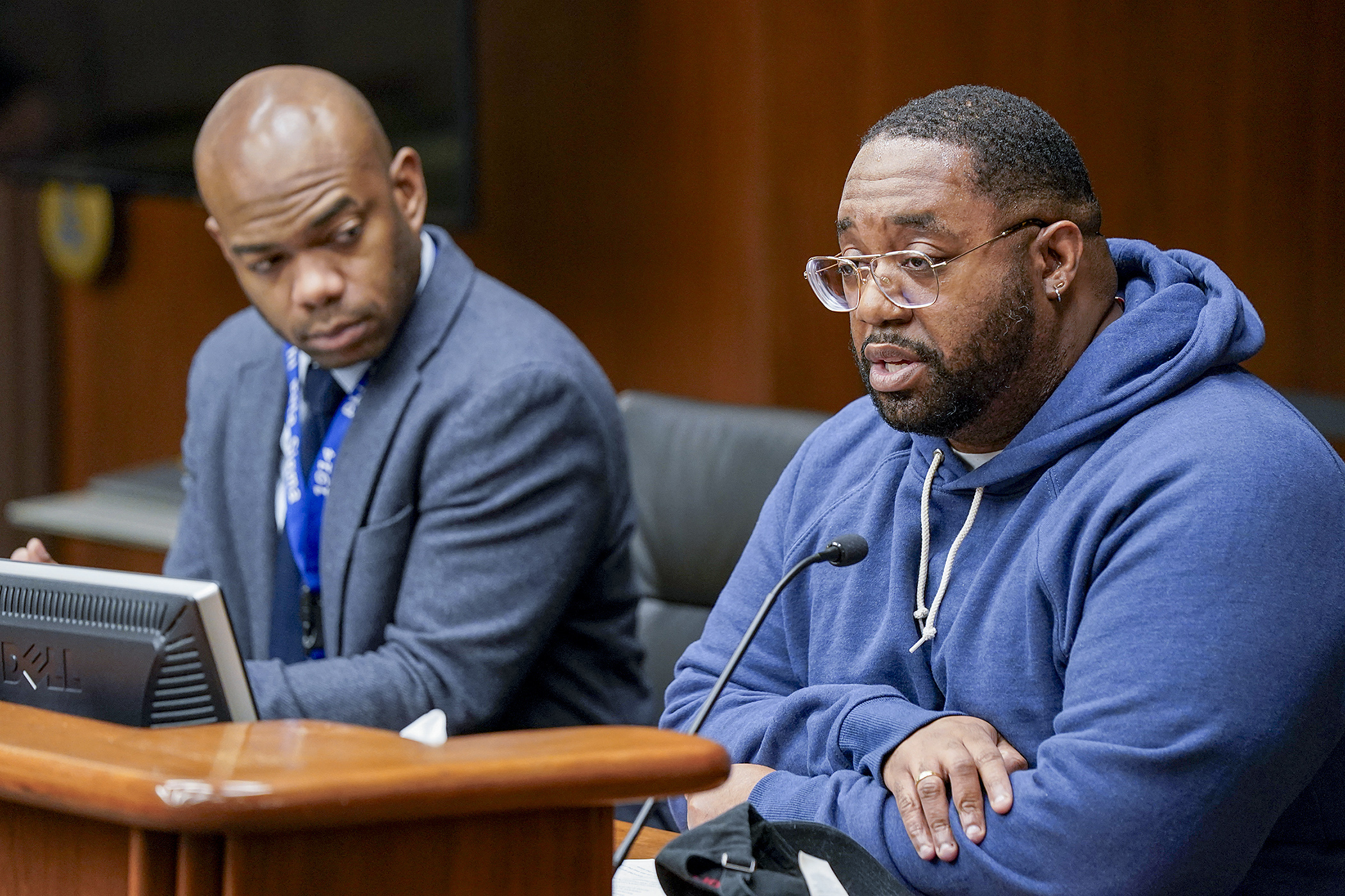Libraries may be prohibited from banning books due to viewpoints, ideas or opinions

— UPDATED March 14 at 10:27 a.m.
What’s the No. 1 request school boards have to the Minnesota School Boards Association the last two years?
Library book policy, according to Terry Morrow, director of legal and policy services for the Minnesota School Boards Association.
“Please help us,” Morrow said is the theme of messages his group receives. “Help us set up procedures. Help us set up approaches.”
Sponsored by Rep. Cedrick Frazier (DFL-New Hope), HF4373, as amended, would prohibit public and school libraries in Minnesota from banning, removing, or otherwise restricting access to a book or other material based on viewpoints or the messages, ideas or opinions the book or material conveys.
Approved on a split-voice vote by the House Education Policy Committee Wednesday, the bill will be sent to the House Judiciary Finance and Civil Law Committee.
Frazier said, as a student, reading materials opened the world for him.
“It took me on trips around the world in my small bungalow house on the south side of Chicago. Took me away from that place. I read those books and I was gone from all the negative things for hours on end. That is what we want to ensure that our kids next generation continue to have.”
Bloomington parent Kendra Redmond said a group petitioned her school board to immediately and permanently remove 28 titles from K-12 school libraries there.
“Their list contained primarily books featuring or written by members of the LGBTQ+ community and people of color,” she said. “Public and school libraries exist to serve the richly diverse communities, not the personal beliefs of some.”
She called school libraries a lifeline for many underrepresented students to see their own lives reflected in the books they read.
Rep. Patricia Mueller (R-Austin) said the committee’s priorities should be in teaching kids to read, not book bans.
“I want us to understand that while we’re talking about this, every book is banned for a child that doesn’t know how to read,” she said. “That’s what we should be focusing on right now.”
Morrow touted the bill as addressing two major issues — the selection of books and the reconsideration of books.
“The school board can set up criteria for guiding the selection committee on what books to put in which library,” he said. “Books should be appropriate to the school that they serve. Elementary books and high school books in two separate libraries serve two different audiences at two different levels of appropriateness.”
He noted that the bill would not limit the rights of a parent, guardian, or an adult student to request a child not be allowed access to certain books, which is similar to the policy on instructional materials.
“Any parent, any time can direct the school library to not allow their child to check out certain books,” he said.
Any citizen could request reconsideration of a book to a committee and the local school board could choose the appeals process, Frazier said.
The bill would allow any person injured by a violation of the book ban to bring a civil action against the public library, school district, charter school, or public postsecondary institution for injunctive relief and attorney fees. In addition to all other damages, the court may impose a civil penalty of up to $5,000 per violation. If it is determined that an action brought is frivolous and without merit, the court may award reasonable costs and attorney fees to the defendant.
Related Articles
Search Session Daily
Advanced Search OptionsPriority Dailies
Ways and Means Committee OKs proposed $512 million supplemental budget on party-line vote
By Mike Cook Meeting more needs or fiscal irresponsibility is one way to sum up the differences among the two parties on a supplemental spending package a year after a $72 billion state budg...
Meeting more needs or fiscal irresponsibility is one way to sum up the differences among the two parties on a supplemental spending package a year after a $72 billion state budg...
Minnesota’s projected budget surplus balloons to $3.7 billion, but fiscal pressure still looms
By Rob Hubbard Just as Minnesota has experienced a warmer winter than usual, so has the state’s budget outlook warmed over the past few months.
On Thursday, Minnesota Management and Budget...
Just as Minnesota has experienced a warmer winter than usual, so has the state’s budget outlook warmed over the past few months.
On Thursday, Minnesota Management and Budget...